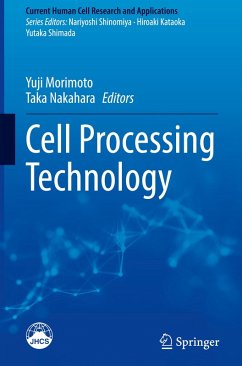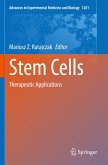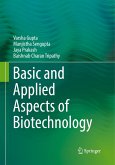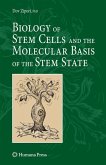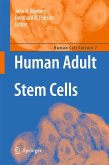Animal cells have been used in a wide range of applications, from pharmaceuticals to regenerative medicine and cell therapy, as well as evaluating drugs and compounds. These applications are supported by cell processing technology, which refers to the process technology and quality control technology for aseptically culturing cells such as skin, cartilage, and bone cells in vitro and producing the result of cells or tissues.
Cell Processing Technology provides the state of the art of cell-processing engineering, including new issues of efficient and automated culture technology of cells in transplantation and non-invasive cell quality assessment technology. The book will be of value to students and inexperienced engineers who are involved in drug discovery and cell medicine.
Hinweis: Dieser Artikel kann nur an eine deutsche Lieferadresse ausgeliefert werden.
Cell Processing Technology provides the state of the art of cell-processing engineering, including new issues of efficient and automated culture technology of cells in transplantation and non-invasive cell quality assessment technology. The book will be of value to students and inexperienced engineers who are involved in drug discovery and cell medicine.
Hinweis: Dieser Artikel kann nur an eine deutsche Lieferadresse ausgeliefert werden.

